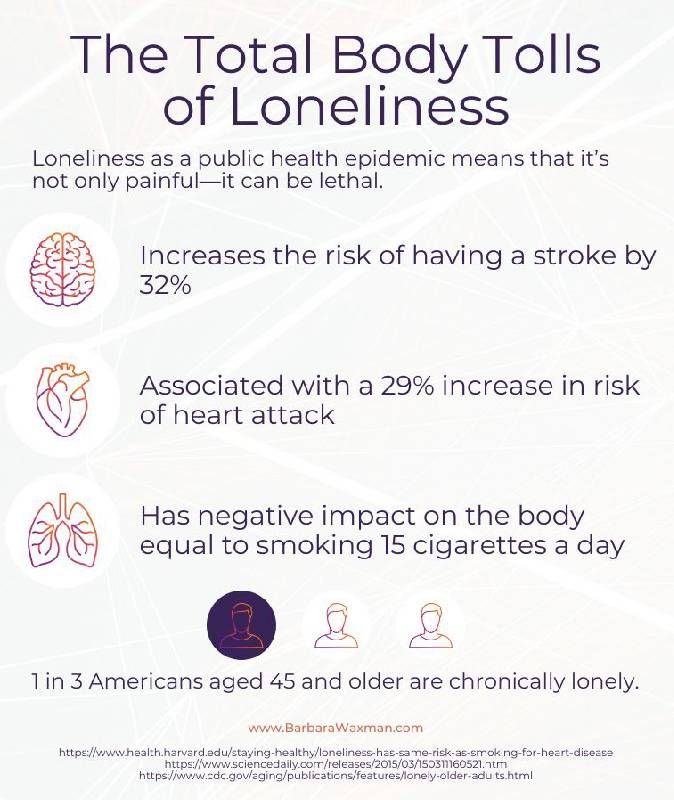How to Find Connection in a Disconnected World
We need more than small talk and social media in order to truly create meaningful connections with one another
In 2017, Vivek Murthy, U.S. Surgeon General, defined the secret sinking, hopeless feeling that was stealing the sunlight from our days. He called loneliness a public health epidemic. His book, "Together: The Healing Power of Human Connection in a Sometimes Lonely World," released three years later, is an empathetic account of this clinical disconnection that suffocates too many of us and those we care about.

It is also a cutting — and rather radical — critique of the value system that, for better or worse, holds up modern society and how it's becoming a scourge to our physical and mental health. Our increasingly complex world is pulling the curtain back on the fragility of our intrapersonal, interpersonal and universal connections in every area of life.
Loneliness as a public health epidemic means it's not only painful, but also lethal.
In business, employee disconnection is one of the main drivers of voluntary turnover, costing companies $406 billion a year. Disengaged employees also have lower productivity, more missed days at work, and a lower quality of work, adding to the hard costs.
But the real cost of disconnection is the demise of the quality of far too many lives. During the pandemic, loneliness increased by 181%. Once an ailment reserved for the aging and the isolated, loneliness now touches all of us — whether coworkers, our children, our families or others surrounding us.
As Murthy narrates, loneliness as a public health epidemic means it's not only painful, but also lethal.
The Deceptive Sides Of Connection
Here's the fake out — loneliness and feeling disconnected is not necessarily the absence of people but the absence of a sense of authenticity, bonding and purpose. So here are the top three deceptive sides of connection:
The Superficial Side of Small Talk
Communicating and connecting are words often used synonymously. The truth is we can all communicate, but that does not mean we are connecting in meaningful ways or with the people who are right for us.
The truth is we can all communicate, but that does not mean we are connecting in meaningful ways or with people who are right for us.
Small talk has been heralded as no small thing for the past two decades. Studies show how it benefits introverts by developing their social skills, improving employees' interpersonal citizenship skills, and even contributing to an improved group climate facilitating a sense of belonging.
Yet, suppose we see the forest for the trees. In that case, societal upheaval, increasing divisiveness, the pandemic's aftermath and burnout in the workforce have each and collectively created a perilous imbalance of small talk and superficial connections eclipsing the deep communication — big talk — and meaningful social connections needed.
The Anti-Social Side of Social Media
Between unraveling global health crises, climate upheaval, changing work structures, social media and the temptation for just one more click – the modern mind is under constant siege. Technology — though useful for connection in many circumstances — is stealing the light of our attention.
In an environment of information abundance, attention has become scarce. And because it is scarce, it is now an object of competition and commodification for many companies. (Netflix's C.E.O. has even famously cited that sleep is their most significant competitor).
Moreover, too much time on social media immersing ourselves in the illusion of others' perfect lives can cause emotional harm, augmenting feelings of exclusion, stress and insecurity.
The Dark Side of Remote Work
While WFH (work from home) comes with many perks (and has even been reported to improve mental health), enjoying the face-to-face camaraderie of coworkers is not one of them.
Connection is an inside job. Thriving intrapersonally creates a solid foundation for everything else.
A recent Microsoft study found that the shift to WFH caused both formal and informal business communities within Microsoft to become more siloed, dropping collaboration time by 25% from the pre-pandemic level.
If you feel disengaged or lonely at work, know it's not solely an individual issue but an organizational challenge.
Quiet quitting and its viral popularity, for example, is a reaction to unsuccessful changes in how most employers manage the workforce. A recent article from the University of Barcelona states, "the psychological contract is increasingly tricky for organizations to handle because the pandemic has altered the expectations of employees significantly."
How to Activate the Energy of Deep Connection
The antidote for disconnection is bringing our energy, attention and sunlight back to what truly matters.
We must take the reins away from the three energy-depleting deceptive sides of connection and reinvest in those that contour our lives with love, laughter and light. Here's how to start:
Intrapersonal: Your Place Within Yourself

Connection is an inside job. Thriving intrapersonally creates a solid foundation for everything else. Our relationship with ourselves, including understanding how to replenish our energy, yields a reservoir to nourish a deep connection with others.
Intrapersonal energy is like an internal reservoir that requires daily replenishment as levels become depleted. Cultivate and replenish your intrapersonal energy and use it as a forcefield against loneliness.
Assess your energy blocks — the essential pieces that ancient traditions and modern research agree can bolster your resilience, emotional equanimity and ability to engage with people and causes you care about.
Interpersonal: Your Place With Others
Interpersonal energy is derived from relationships with others and is gained or lost due to the quantity and quality of those connections. Think of intrapersonal energy as a reservoir and interpersonal energy as an emotional bank account.
When invested wisely, interpersonal energy will bolster a sense of courage, equanimity, connection and resilience. Even when we feel too busy to focus on socializing, it's essential to get back into the practice of having a face-to-face connection with people we trust and can confide in.
Those interactions have been proven to release a healthy cocktail of neurotransmitters that can make us less stressed and more resilient.
Learn to say no, while cultivating and saying yes to healthy relationships to amplify your impact.
Unhealthy relationships and toxic connections can leave you feeling depleted and diminished. Healthy relationships will enable you to grow, feel supported and increase your joy — amplifying your impact on your family, workplace and communities.
Universal: Your Place In the World
Universal energy is free, accessible and available to be drawn from at will, even when time and resources are scarce. When activated, universal energy can heighten awareness, focus and emotional equanimity while decreasing your stress response.
Universal energy is free, accessible and available to be drawn from at will, even when time and resources are scarce.
Examples include spending time in nature, experiencing the arts and practicing Qigong. From an evolutionary perspective, we're programmed for protection and mutual aid; feeling useful and needed eases our feelings of isolation.
Whether we dedicate our time to advocacy against racism, sexism, ableism or ageism – contributing to causes we care about is an antidote to loneliness and fills our cups. Yet, few of us will discover and devote ourselves singularly to a "Big P" purpose and change the world, much less save it.
Becoming overly focused on striving for the type of purpose worthy of capital letters, we can begin to feel out of touch with the vital sources of meaning in our lives that connect us to the bigger world—" little p" purpose.
Let's Take Care Of Each Other, Together
A bit of good news: understanding the deceptive sides of connection empowers creative solutions to help ourselves and those we love to create more meaningful connections in every area of our lives.
Here are great resources to fill our cups today for a less lonely tomorrow:
Explore the Modern Elder Academy and Mastery Week: Consciously Curate Your Life to cultivate camaraderie and wisdom in an environment that nurtures deep connection, emotional safety, lightness of heart and active learning.
Generations Over Dinner is an important and fun new initiative that strives to create meaningful multi-generational conversations and experiences over the original unifier: food.

